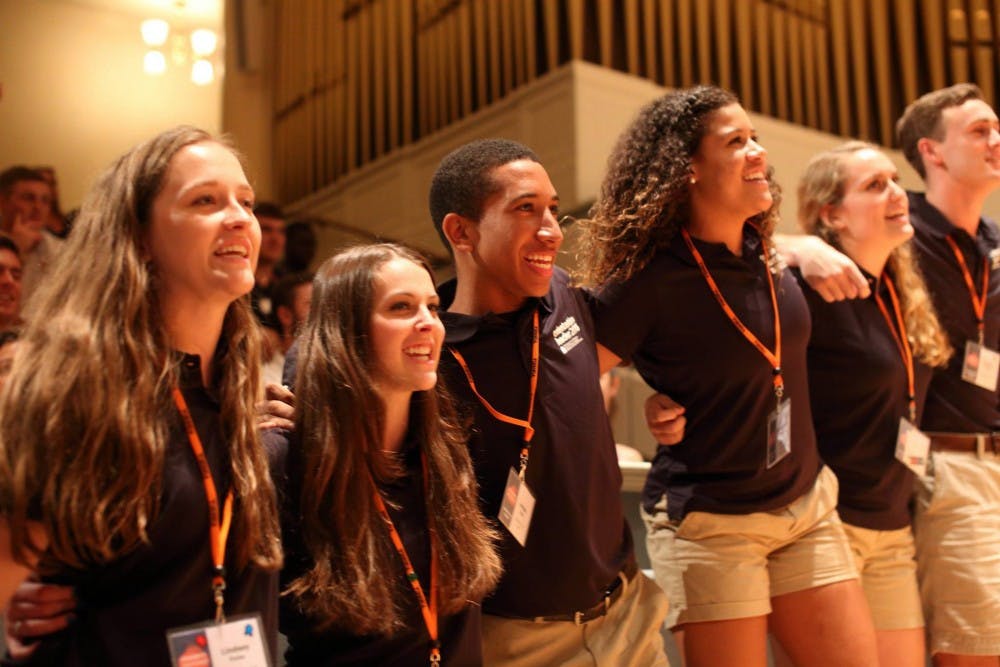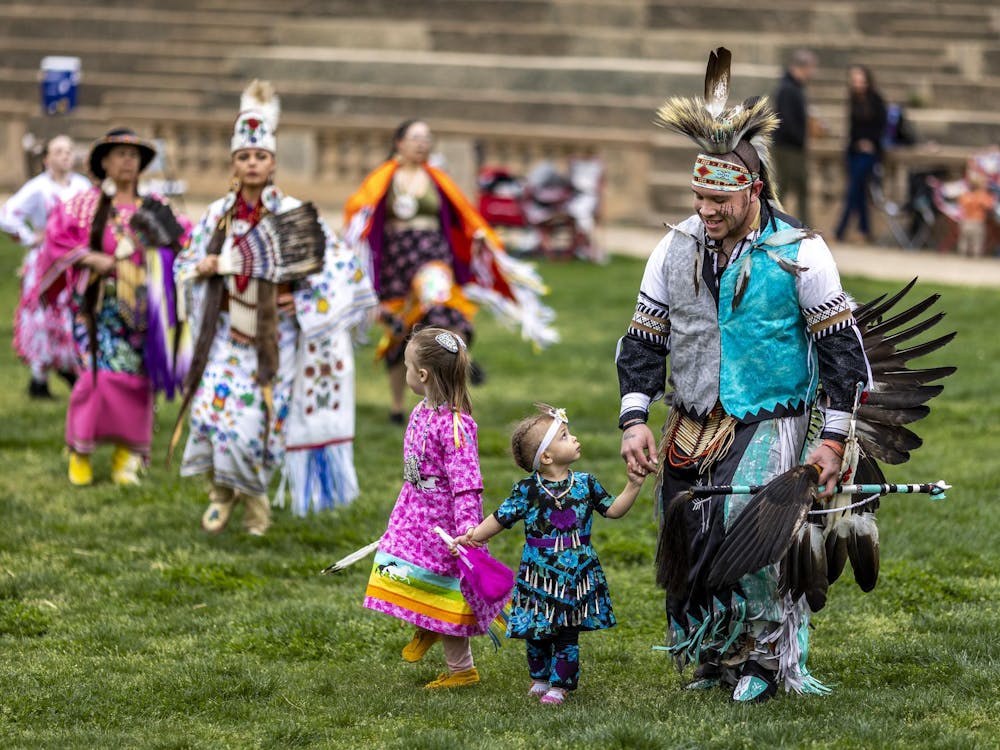On Sunday, June 18, 2017, 52 Orientation Leaders moved into Gibbons to engage in a two-and-a-half-week training period to ultimately help new first-years assimilate to the college experience. As nearly every University student can attest, orientation is one of the first real experiences at the University to make bonds, get acquainted with the buildings and call the University a home, and Orientation Leaders are crucial in this process.
In the training, Orientation Leaders engage in various team building activities, such as going to Poplar Ridge Challenge Course and spending time in Graves Mountain Lodge in Syria, Virginia. Third-year Commerce student Sharvani Mehta, a first time Orientation Leader, did not expect the amount of collaboration and team building she has enjoyed so far in training.
“I expected training to be centered on the facts ... almost cut and dry,” Mehta said. “But training has been amazing — it’s so much fun … We did so much team building, which made us all a lot closer.”
Mehta described one of the most memorable parts of training so far, going to Graves Mountain Lodge, as an experience that allowed to her to become very close very fast with many of her fellow Orientation Leaders.
“We also went to Graves Mountain Lodge in Syria, Va., which was really intense because you’re there with all 52 Orientation Leaders,” Mehta said. “We shared a lot of personal stories ... I felt like I was really able to learn a lot from everyone’s backgrounds and stories.”
Third-year College student Joseph Malasa attests the presence of fellow Orientation Leaders, along with a desire to create a more inclusive experience for orientees, was a large part of why he chose to be an Orientation Leader for the second summer in a row.
“I’m Asian-American, and I wanted to show that there’s a lot more to do than join a frat or a large CIO,” Malasa said. “A big reason I’ve returned is that I met so many great people that it allowed to become more comfortable and explore more about myself and really try to find my role at the University and who I want to be as a person.”
Malasa said he also returned to continue to change the culture of the University into one of inclusion.
Third-year College student Hanna Vossler said in an email she too had this goal for first-years and transfers attending Orientation.
“I want to stress to the orientees to approach college with an open mind, and to challenge themselves along the way,” Vossler said.
During the weeks spent training, Orientation Leaders can pinpoint important points about the University experience they’d like to relay to their orientees.
“One of the best pieces of advice I was given before going to college was … that college is like a game,” Malasa said. “As long as you’re making a move, as long as you’re doing something, you’ll have fun doing it and you’ll learn a lot — whether you win or not is not as important.”
In the journey of working to affect the experience of incoming first-years, the training Orientation Leaders undergo ultimately allow them to develop their own identities, as well. Through the numerous team building activities they go through, Orientation Leaders are pushed to question their own identities and learn from leaders within the University community of diverse backgrounds.
“The experience of being an OL has given me a very holistic view of the University, including from the administration side,” Malasa said.
Second-year Engineering student Tori Hinchberger said the most important thing she learned during orientation was how hard faculty members work to create a positive experience for students.
“I have had the opportunity to meet quite a few U.Va. faculty members,” Hinchberger said. “In just these short interactions, I can see how much they care about the students and their experiences here at U.Va.”
Orientation Leaders will use their training and University experiences to welcome and prep incoming first years for their college careers.





